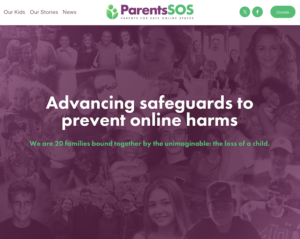What children need to grow and succeed they are not getting. We have failed a whole generation of children in so many ways. It is beyond the time to pull our collective heads out of the sand and take a good hard look at the harm screens cause. We need to make immediate changes in how we raise and educate children if we are to achieve sustainable futures for them. This article is research referenced from the Reconnect Webinars Fact Sheet and lists 43 primary and 23 secondary negative effects of screens on developing children. Weight of evidence indicates immediate action to protect children is needed. Early media use for long durations which includes intense/potent content combine to create a scary trajectory toward a painful and drastically shortened life span for today’s ‘screen centric’ children.
Primary impacts can be categorized into five developmental domains: physical, mental, social, emotional, and cognitive.
- Physical impacts of screen over use include poor fitness, obesity and diabetes, developmental delay, brain damage, adrenal fatigue, sleep deprivation, radiation damage, eating disorders, reduced bone density and myopia.
- Mental impacts of screen overuse include depression, anxiety, adhd, autism, obsessions, compulsions, addiction, self harm, and suicide.
- Social impacts of screen overuse include isolation, antisocial, social phobia, agoraphobia, social anxiety, less dating and earlier sex.
- Emotional impacts of screen overuse include aggression, impulsivity, dysregulated, poor coping skills, screen craving, low self-esteem and altered self concept.
- Cognitive impacts of screen overuse include attention deficit, failed learning, lost time, illiteracy, poor grades, truancy and expulsion.
Secondary impacts of screen overuse are rising rates of domestic violence, rape, incest, predation, sexual exploitation, prostitution, sex trafficking, racism, hate crimes, incels, school shootings, failed relationships, family disintegration, school dropout, failure to graduate and leave home, unemployment, absenteeism, pervasive boredom and low productivity, earlier heart attack, stroke, cancer and death.
Why is society so slow to act to protect children from harm? ‘Screen centric’ children have ‘screen centric’ parents and teachers who appear to be in a screen induced, paralyzed state of suspended animation which grossly limits their ability to see the obvious. Society has effectively normalized screen addiction and consequently doesn’t seem to think above noted 66 primary and secondary impacts are all that important. Adults have also convinced themselves that they and their children need life to be easy and that they need to be entertained every moment of every day. The dichotomy of this thinking is that watching screens all day has lulled everyone into a state of dull complacency, lack of motivation and literally bored right out of their mind. While we are told that screen technology has made our lives easier, more efficient, and certainly well entertained, the results show this apparent ‘ease’ comes at a significant cost, especially for our young. Human bodies and brains thrive on working hard and require lots of movement, touch, human connection and nature to optimize growth and success. This easy entertainment has resulted in humans being physically and mentally sicker than they’ve ever been before, and for the first time in the history of humankind, children have addictions.
This level of induced boredom and lack of motivation that coincides with screen overuse makes it highly unlikely that screen centric children (or their parents or teachers) will just “kick the habit”. Health and Education governments need to take immediate action to educate, regulate and legislate both the general public and the technology industry starting with laws to restrict access to the big 3 killers of children: social media, video games and pornography. Due to unrestricted and unsupervised use of cell phones in schools, I wrote to all Education and Health Ministers in Canada in July with 6 reasons to get phones out of schools posted on my blog titled Screens in Schools Policy Guidelines – Open Letter to Education and Health Governments | Moving to Learn. Write to your congressperson or MLA today and express your concerns about the harm screens are causing to your children. If we do something, change will happen.
Need Help?
Reconnect Webinars – Screen Addiction Trajectory Quiz
Reconnect Webinars – Technology Management




